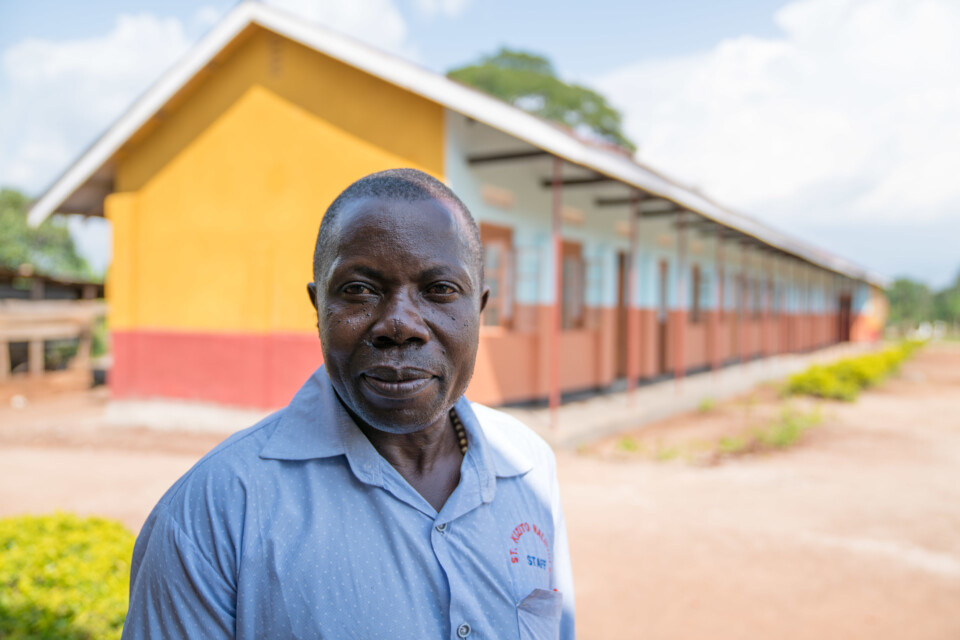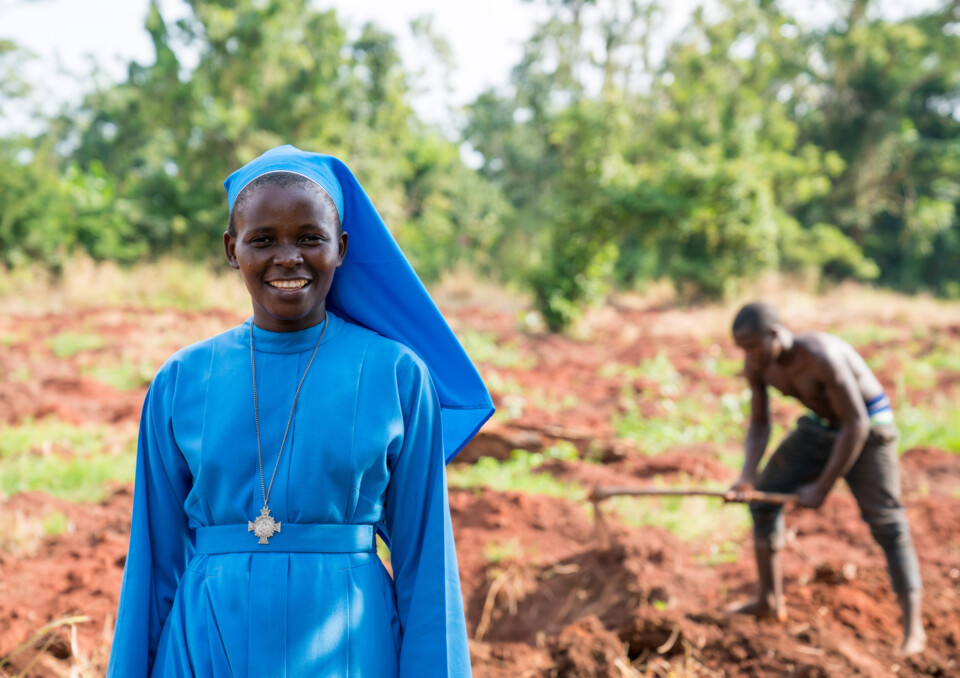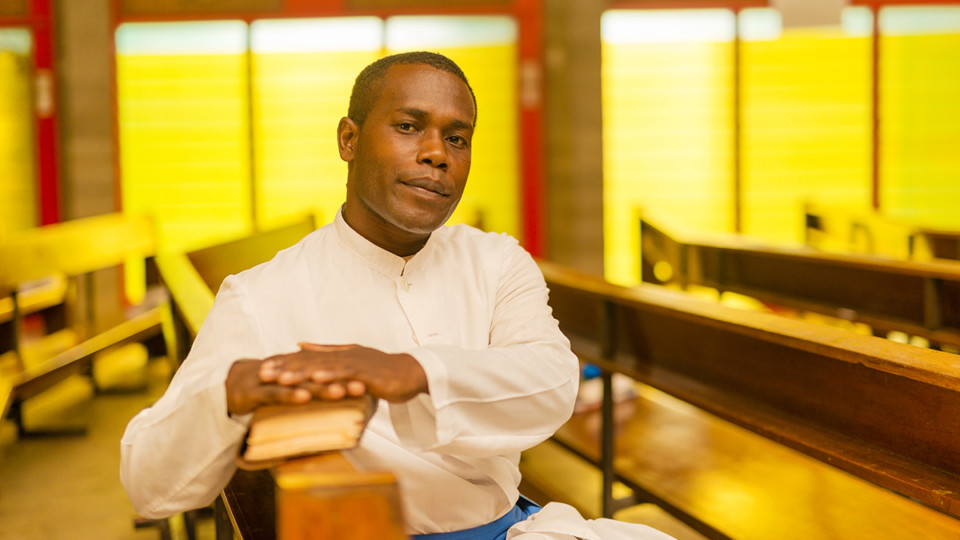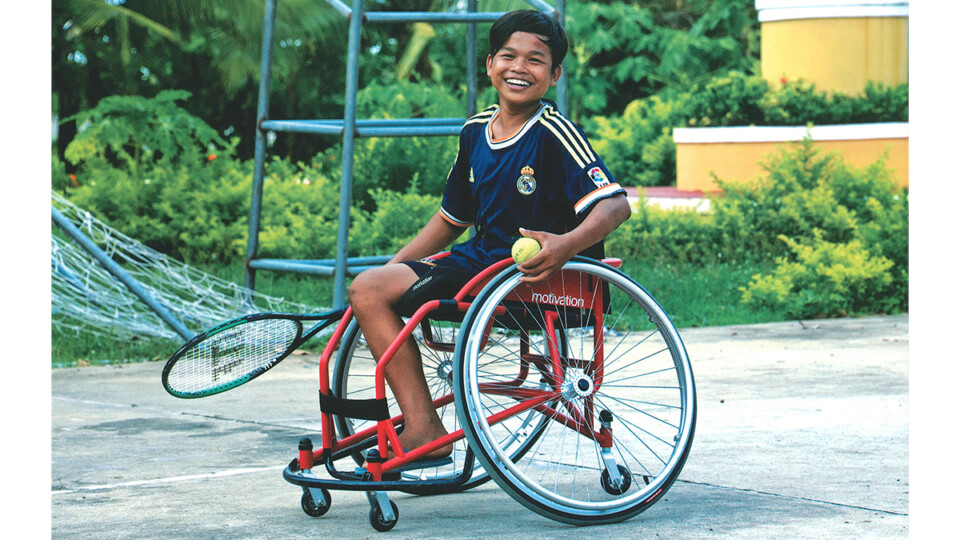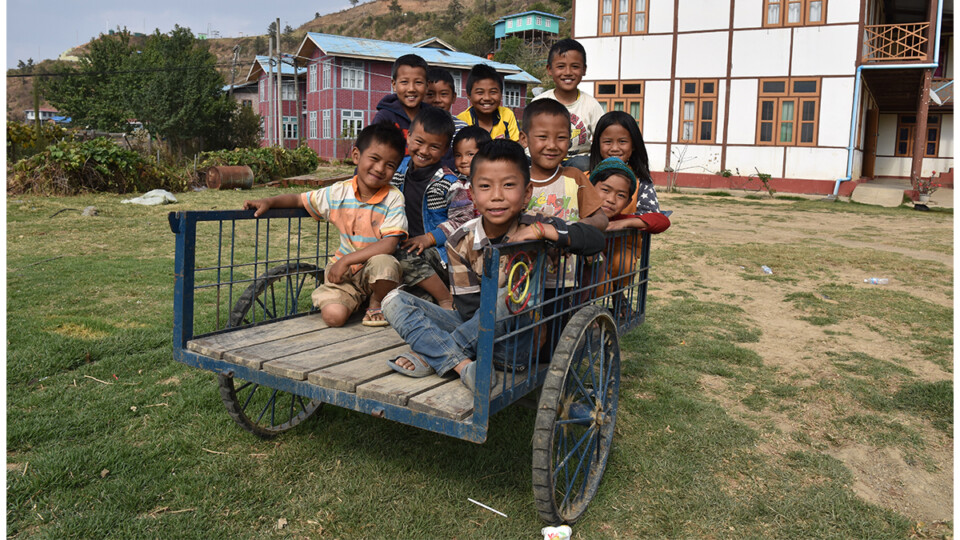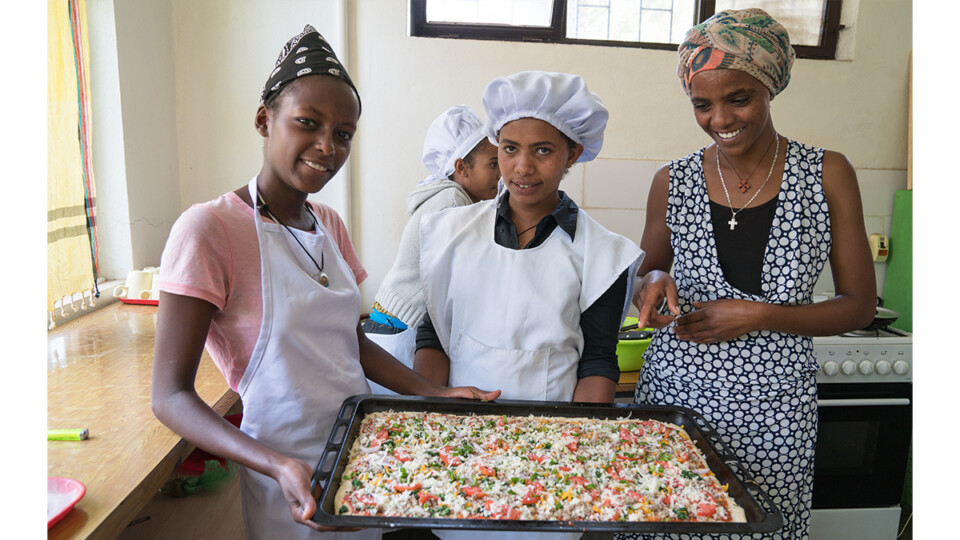
Watering the seeds of a strong community
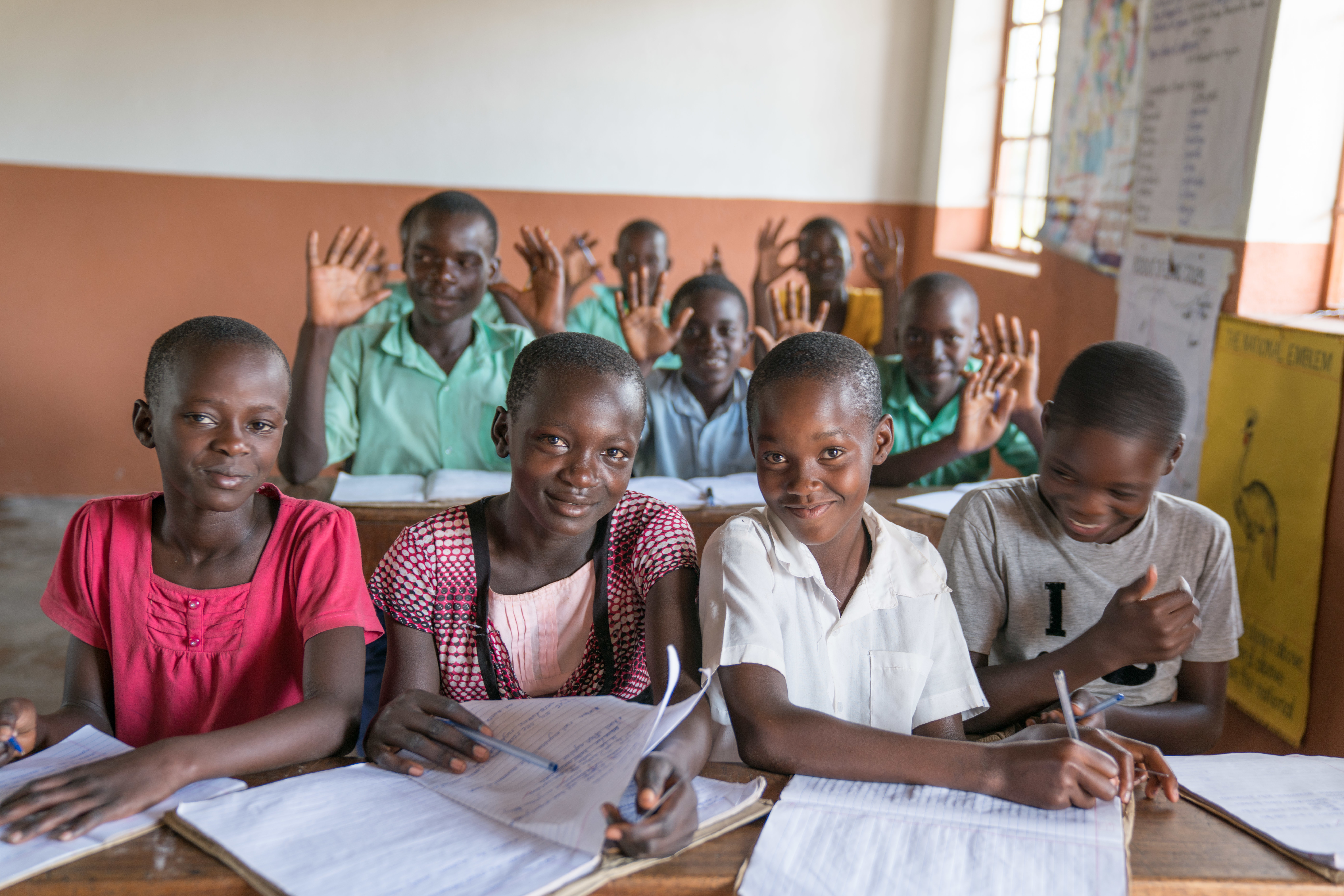
Bishop Paul Ssemogerere says his diocese of Kasana-Luweero in central Uganda was established 20 years ago with a Gospel verse ringing in the ears. ‘The first bishop of this diocese, Bishop Cyprian Kizito Lwanga, came with a vision for the diocese that the life of Christ may grow, and grow abundantly; he was quoting from John 10:10.’ Today, with many challenges facing the people of the diocese, particularly in terms of education, it is the support of Catholic Mission that upholds that vision and ensures vulnerable children can have a full life.
The Diocese of Kasana-Luweero was founded at the end of 1996, having previously been a part of the Kampala Archdiocese. Its establishment, says Bishop Paul, was a blessing for the people—not just the Catholic community—who had endured years of destructive civil war. ‘This diocese had suffered civil war for many years which brought in the current government. Because of the war, a lot was destroyed; structures were destroyed, people’s morality had been destroyed, anything that had life had been destroyed,’ he recalls. ‘The coming of the Church was a blessing, we had a revived education system, and people were encouraged to see God as a loving and defending God.’
Education was seen as the key to moving forward from the destruction brought on by years of conflict. In taking the reins from his predecessor, Bishop Paul saw a great challenge. ‘When I came in over eight years ago, I looked at the work that had been done and thought, “what am I going to do?” so I came with a vision to continue the growth, and water the seed that had been planted.’
He decided there was one clear starting point. ‘The first thing I thought would help the people was a foundation of education. So, we have tried to make sure each parish has a primary and secondary school.’ That goal has seen the construction and repair of schools in the diocese and the development of a project to enhance the education of children from disadvantaged backgrounds.
The multifaceted project focuses on the empowerment of orphans and other vulnerable children by providing scholastic support and economic empowerment. Across 12 primary schools in the diocese, over 270 orphans and vulnerable children have been provided with material to support their early education, including books and stationery. The children have also been supplied with essential toilet and sanitary facilities, which has led to increased attendance rates.
While the children benefit from practical educational support, the diocese has also put in place training programs for caretakers and animators—over 280 of them. The aim of the training, says Bishop Paul, is to ensure that the vulnerable children enrolled in diocesan school programs are cared for by dedicated staff who understand their duty towards the children. It also boosts the project’s sustainability and continuity.
The tuition fees for orphans and vulnerable children, which are provided by the program at the respective schools, cover administrative fees and the costs of meals, ensuring children can be healthy, focused and performing at their best in school.
There is still much to be done in a diocese where social issues such as domestic violence, poor sexual and reproductive health, and rising school drop-out rates are prevalent. ‘My dream as a bishop is to have a good nursery school so we can start with the children from scratch, not only to teach them about classroom work but also about values of society, church and cultural values,’ says Bishop Paul.
‘The key is education – education for the young ones but also formation for the adults.
‘We are very grateful for Catholic Mission,’ he continues. ‘It is quite a blessing that we have been helped and we are grateful to the Australian people for their generosity. We have to ensure the assistance given to us to help others is put to good use.’
